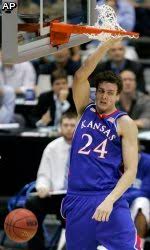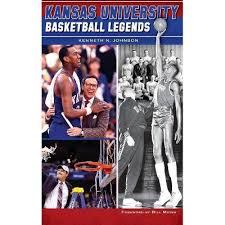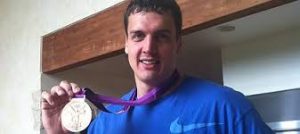The NBA Finals date back to 1947 (when they were known as the Basketball Association of America Finals) and the very 1st NCAA tourney was held in 1939. Olympic basketball competition is even older: it debuted as a demonstration event in 1904 and the men’s version became a medal sport in 1936, with the women finally getting their chance to go for the gold in 1976. The United States has dominated Olympic basketball competition from the start: the men have won 15 gold medals in the 18 tournaments they have participated in during the past 84 years, while the women have won 8 gold medals in the 10 tournaments in which they have competed during the past 44 years. Those of you who were looking forward to the 2020 Olympics opening ceremonies in Tokyo on July 24, 2020 will have to wait an extra 364 days, as the coronavirus caused a postponement until July 23, 2021. Due to the absence of college basketball since mid-March, HoopsHD’s Jon Teitel decided to fill the void by trying to interview as many prior Olympic players/coaches as possible so that you have something to read this year while not watching the Summer Games. We continue our coverage by chatting with Dr. Kenn Johnson, KU alum and author of multiple books about KU basketball, about Sasha Kaun winning an NCAA title for Kansas in 2008 and a bronze medal for Russia in 2012.
Sasha was born in Russia but played high school basketball in Florida and had offers from several great schools including Duke/Michigan State: what made him choose Kansas? “Kansas started recruiting me after the first AAU tournament”. His final list included KU, Duke, and Michigan State. “They were the best schools. All the schools were great. I just felt I fit in at Kansas better. I felt at home there. I hung out with the players and liked them all. The family atmosphere was everywhere but I felt it more at Kansas.” After graduating he said about KU: “No matter what I will go back. It is just a special place, pretty much everything about it.” He and his wife return often.
He played for Coach Bill Self: what makes Self such a great coach? The proof is in the pudding. Self has led the Jayhawks to 3 NCAA Final 4 appearances (2008/2012/2018) and the 2008 NCAA championship. Self was inducted into the Naismith Memorial Basketball Hall of Fame in September 2017. He is currently among the leaders in most wins among D-1 coaches in NCAA history. Regarded as the Big 12 conference’s best coach by all measures, his 81.9 W/L% at Kansas is the second highest among all college coaches. He and Sasha had a great relationship. Self said, “Sasha has probably had about as good a career as anybody on our team when you stop to think of it.”
The Jayhawks had a 1-PT loss to Bucknell in the 2005 NCAA tourney and a 4-PT loss to Bradley in 2006 NCAA tourney: what was the mood like in Lawrence after these back-to-back 1st round upsets at the hands of double-digit seeds? Lumbering behind Bucknell the whole game, the team could not shake the slump and ended the season with a 64-63 loss to a no-name team from a minor conference. It is hard to explain how a team with such experience and talent could go into the tank so bad. It was disappointing to see those great seniors, who had worked so hard for four years, go out on a losing note to a minor team. The next season, in 2006, after finishing 1st in the conference (13-3) with an overall record of 25-8, expectations were high against #13-seed Bradley, but the young KU team (who started 3 freshmen/2 sophomores) simply did not contend. In both cases, KU fans were extremely disappointed. I subsequently suggested that KU never again schedule games against teams starting with a “B”!
In the 2007 postseason KU won the Big 12 title game by 4 PTS in OT over Texas, then made it to Elite 8 and Sasha scored 4 PTS in a loss to UCLA: how close did they come to making the Final 4? After returning every key player from the 2006 team that shared the Big 12 regular season title with Texas and defeated the Longhorns for the conference tournament title, the Jayhawks repeated as Big 12 champs (14-2) and expected to contend for the national title in 2007 as the top seed in the NCAA tourney. ESPN’s Andy Katz ranked the Jayhawks as the 2nd-best team in the nation so expectations were high…but the Bruins came on strong while beating KU 68–55, their largest margin of defeat all season.
Take me through the magical 2008 NCAA tourney:
Sasha scored 13 PTS/6-6 FG in a 2-PT win over Davidson: how were they able to hold Steph Curry to 25 PTS and end the Wildcats’ 25-game winning streak? First of all, Sasha also had 6 rebounds/3 blocks. Actually, KU was extremely lucky that Steph missed his last shot: a 3-pointer that would have given Davidson the win.
He scored 4 PTS in a 7-PT OT win over Memphis in the title game: what are your memories of “Mario’s Miracle” (www.youtube.com/watch?v=E84y-SrwUtA), and where does that game rank among the greatest in KU history? It was a comeback for the ages, as the Jayhawks stormed back after being down by 9 PTS with 2:12 left in regulation. They mounted a comeback that will go down as one of the most memorable in KU history to win the 2008 NCAA championship. Kaun said he remembers climbing the ladder, pumping his fist, and clipping a piece of the national championship net at the Alamodome.
He graduated with a degree in computer science and was selected to the Academic All Big 12 Basketball Team 3 straight years from 2006-2008: how was he able to balance his work on the court with his work in the classroom? Kaun was the definition of a student-athlete. His hard work over four years was what every coach/teammate/fan could ever ask for. He became the second Jayhawk to receive the Lowe’s Senior CLASS award, which is presented annually to the Student Athlete of the Year. Wayne Simien won the award in 2005.
In the summer of 2008 he was drafted 56th overall by Seattle (the final draft pick in Sonics history before the franchise moved to Oklahoma City), then was traded to Cleveland for cash, then returned to his home country and won 5 straight Russian League championships from 2009-2013 with CSKA Moscow: what did it mean to him to be drafted, and how was he able to go back to Russia and have so much success? While it was good to be drafted, Kaun felt that he just was not ready for the NBA at the time and decided that going back to Russia was his best alternative. After signing a contract with CSKA Moscow he said, “I am going to a team that is as close to an NBA team as you can find. It is a great organization: a very prestigious club.”
He played for the Russian national basketball team at the 2012 Olympics: what did it mean to him to represent his country, and what did it mean to him to win a bronze medal? Kaun and 11 of his closest friends piled on top of each other at the top of the key in the Olympic Park Basketball Arena after the final horn sounded in Russia’s 81-77 bronze medal victory over Argentina on August 12th in London. “I was so happy. It means everything,” said Kaun. “To be the first team in Russia history to go and win a medal is unbelievable.” He was proud of the fact that he was the first Jayhawk men’s basketball player in the Olympics since Danny Manning in 1988 and the first ever to play for a country other than the USA.
In September 2015 he signed with the Cavaliers but did not play a single game for them during their playoff run to the 2016 NBA championship: what did it mean to him to win a title, and how big a deal was it for him to join Olympic teammate Timofey Mozgov as the 1st Russians to win an NBA title? Kaun was the 12th Jayhawk to win an NBA title. However, his time with Cleveland was disappointing in that they simply did not play him, so the title was not that important and his involvement with Mozgov was minimal: “Unfortunately my role was very limited and small. Still, to be wanted by a team like this and to be part of it has been a phenomenal experience.” Right after the championship he was traded to Philadelphia, and 6 days later he announced his retirement from pro basketball.
His wife Taylor played soccer at Kansas: who is the best athlete in the family, and what has he been up to since retiring? “My wife is very competitive too. In our household it is always fun: we always try to do our best in whatever we are doing. I think it is a good quality to have.” However, it is impossible to try and compare the two. After retiring Kaun said, “I was very blessed and fortunate to play as long as I have. I had a great experience with the Russian national team and professionally. Overall, it has been phenomenal.” He and Taylor now live in Denver but travel to Kansas frequently.



